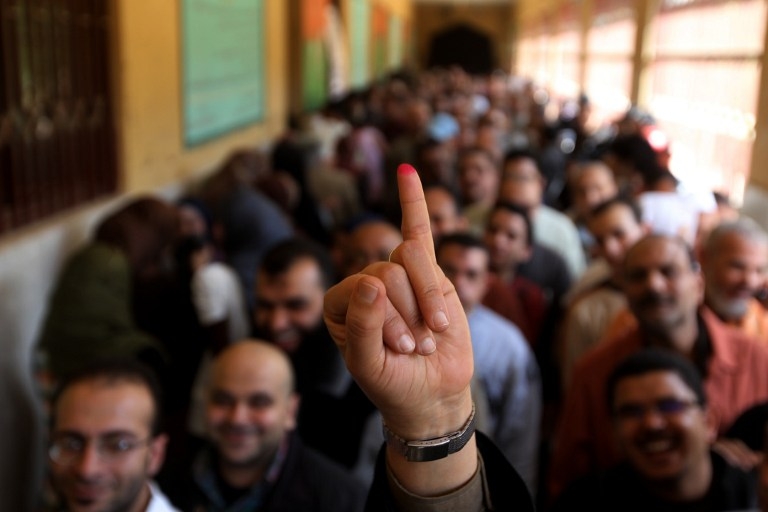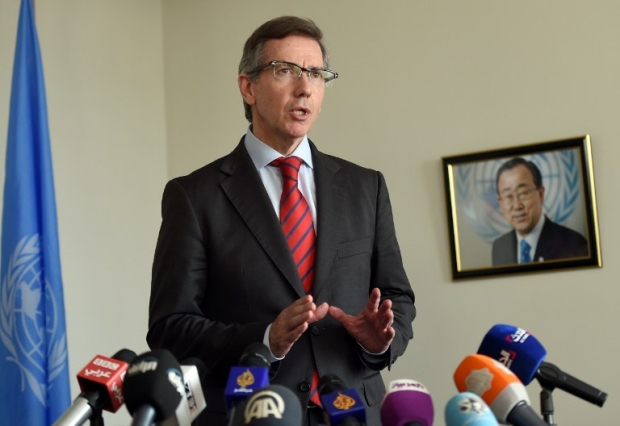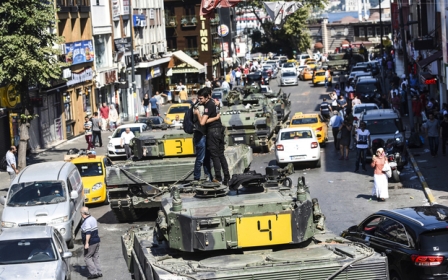The greatest threat to democracy? The myth that it is inevitable

Until recently, the proposition that democracy was vulnerable even in countries where it has been long established would have been met with derision. But what a difference a few months can make.
In the United States, we are witnessing the rise of what can only be described as fascism in the presidential elections. After months of refusing to contemplate a Trump candidacy, the party of Abraham Lincoln and Dwight D Eisenhower has nominated a man for president who has proudly campaigned on promises to violate and disregard the Constitution of the United States of America. At one point, Nate Silver’s fivethirtyeight.com polling website had him neck to neck with Clinton.
In Austria, an avowed far-rightist was narrowly defeated, only for the results to be annulled by the courts and fresh elections ordered. Across Europe, far-right parties are surging in countries such as France and the UK to the point where their popularity and possible influence enter into the calculus of mainstream parties. The Brexit campaign helped to mainstream far-right political narratives in Britain and the result has in turn empowered those parties in other European countries.
Why is this happening now? There are complex reasons for why nations descend into fascism, but I believe there are two fundamental factors that are at the heart of the phenomenon at hand.
'The greatest trick the Devil ever pulled'
First, democracy can only survive surrounded by other democracies; lone democracies do not survive long. Second, democracy is ultimately undermined by discourses that create the illusion that democracy is unassailable, that democratic governance has become so entrenched in society it cannot be undone.
It is difficult to remind people that democratic governance in Germany and Italy is one generation deep, that Spain has yet to celebrate 40 years as a stable democracy
Democracy is also ultimately undermined by discourses that posit that democratic governance is made possible because of factors intrinsic to that particular culture or society. The latter discourses are examples of mythomoetuers, that is myths “about the origins, special character, and destiny of a nation".
One of the most dangerous mythomoteurs in “Western democracies” is the sanctimonious discourse that posits that democracy is possible only because of factors innate to Western societies. For example, that the Judeo-Christian-Hellenic tradition makes democracy almost effortless and inevitable as the only possible means of government.
And he seemed to argue that Islam, on the other hand, was incompatible with Europe since it maintains that the divine exists beyond rationality and other human concepts. Bernardino Leon, then EU special representative for the Mediterranean, liked to harangue members of President Morsi’s administration, that “human rights is in our DNA”.
Keyser Söze made the insightful observation that 'the greatest trick the devil ever pulled was convincing the world he did not exist'
This discourse creates a false sense of security, a sense of entitlement and contributes to a fundamental misunderstanding of the very real threats to democracy. A population so socialised, progressively becomes less likely to make the choices necessary for the perpetuation or real defence of democracy.
Keyser Söze made the insightful observation that “the greatest trick the devil ever pulled was convincing the world he did not exist". In a similar way, the greatest threat to democracy in any country may be the national myth that democracy in that country is inevitable and unassailable.
Another facet of this discourse is to cast modern “Western” history in one long and sweeping progressive arc towards ever wiser and better government and hence that the future can only bring more democratisation and progress.
Lost in both of those constructions are the inconvenient details: democracy in Greece and in Rome had but a brief tenure. For most of its history, the Judeo-Christian tradition tolerated and indeed supported authoritarianism. It was only with the expulsion of religion from the public sphere in the “West” that democratic government became possible.
This discourse has been so powerful and insidious that it is difficult to remind people that democratic governance in Germany and Italy is one generation deep, that Spain has yet to celebrate 40 years as a stable democracy.
Anywhere is everywhere
The other factor that contributes to an erosion of democracy is the defeat of democracy elsewhere. In an ever shrinking world, made smaller every day by the proliferation of communication technology and the ease of travel, if democracy is threatened anywhere, it will be threatened everywhere.
When Malcolm X was asked about the assassination of John F Kennedy, he responded that it was a case of 'chickens coming home to roost'
When Malcolm X was asked about the assassination of John F Kennedy, he responded that it was a case of “chickens coming home to roost.” He subsequently explained that no society can condone hate or violence against a segment of its population while expecting that violence to remain entirely contained against only that population and that “hate, allowed to spread unchecked, had finally struck down this country’s chief magistrate".
Tolerating and indeed supporting anti-democratic regimes elsewhere in the world is the international equivalent of “chickens coming home to roost”. We cannot tolerate, even encourage, violence, repression and authoritarianism as the most expedient and successful means of governing people in places like the Middle East without risking a bleeding of those attitudes into “Western” societies.
The case of Egypt is telling. Senate leaders, various presidential candidates, the secretary of state, and, to some extent, even the president of the United States have all extolled the virtues of Sisi’s authoritarian ways as both necessary and visionary. Is it then such a leap when those republican presidential candidates extol the governance style of Vladimir Putin? Is it so surprising when we discover that there are some, even many, in our "Western" populations who admire such qualities and believe we also need such leaders?
Those two factors are inter-related. Nations’ proclivity to see themselves as exceptional is directly related to a more limited interest in the cause of democracy elsewhere, while the rise of authoritarianism elsewhere is more likely to appeal to a population less attuned to the risks of authoritarianism to their own democracy.
Define it, defend it
But if it is the self-interest of democratic nations to promote democracy around the globe, how is this best done? After all, the current, sustained tragedy that is Iraq was largely wrought by an invasion that promised to liberate that nation from the grip of authoritarianism and transform it into a blossoming democracy.
Perhaps we should agree on what ‘democracy’ means. First and foremost, it does not mean wholesale imposition of values and laws
A decade and a half later, the only things that seem to be blossoming in Iraq are sectarianism and violent extremism. An even more limited intervention in Libya does not seem to have had much better success. Some have addressed that apparent failure eloquently. But in essence, democracy promotion ought not to be an exercise in creating societies or states that are identical to ours.
At a minimum, however, three factors must be in place for a country to claim to be somewhat democratic: the right of people to choose their own government; rule of law, underpinned by a robustly independent judiciary and anti-majoritarian protections; and finally primacy of non-violence in resolving conflicts.
The tasks of propagating those values is difficult, but in pursuing those goals, as in pursuing the cause of democracy overall, we should be more attuned to the fact that, in a progressively shrinking world, the failure to defend democracy anywhere, erodes democracy everywhere.
- Dr Wael Haddara is an Associate Professor of Medicine at Western University in London, Ontario. He is a husband, a father, a pharmacist, a physician, a lecturer, a bibliophile, a community activist, a Canadian political analyst and a thought-leader on the Middle East. In 2012-2013, he served as senior advisor to President Mohammad Morsi.
The views expressed in this article belong to the author and do not necessarily reflect the editorial policy of Middle East Eye.
Photo: An Egyptian man show his ink-stained finger after casting his vote at a polling station in Mansura, 120 kms north of Cairo, on 19 March 2011 as voters got their first taste of democracy in a referendum to a package of constitutional changes after president Hosni Mubarak was forced to relinquish his 30-year grip on power last month in the face of mass street protests (AFP)
New MEE newsletter: Jerusalem Dispatch
Sign up to get the latest insights and analysis on Israel-Palestine, alongside Turkey Unpacked and other MEE newsletters
Middle East Eye delivers independent and unrivalled coverage and analysis of the Middle East, North Africa and beyond. To learn more about republishing this content and the associated fees, please fill out this form. More about MEE can be found here.







